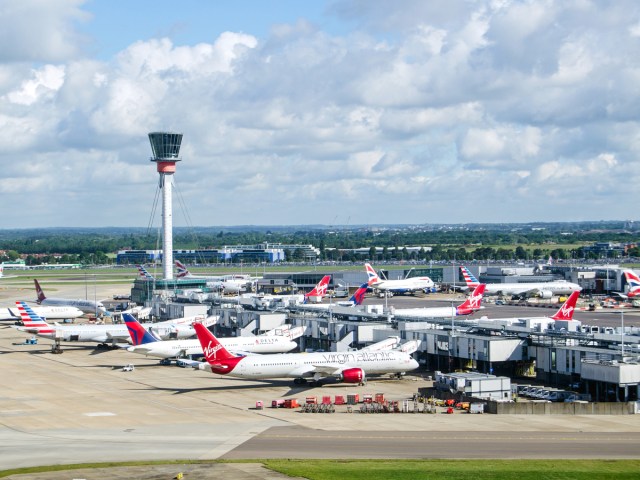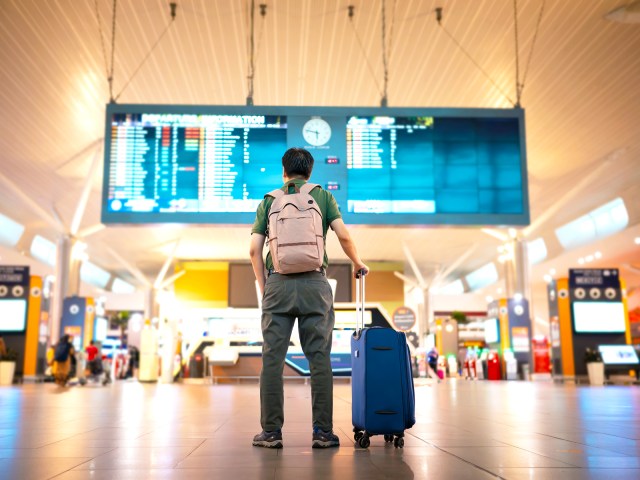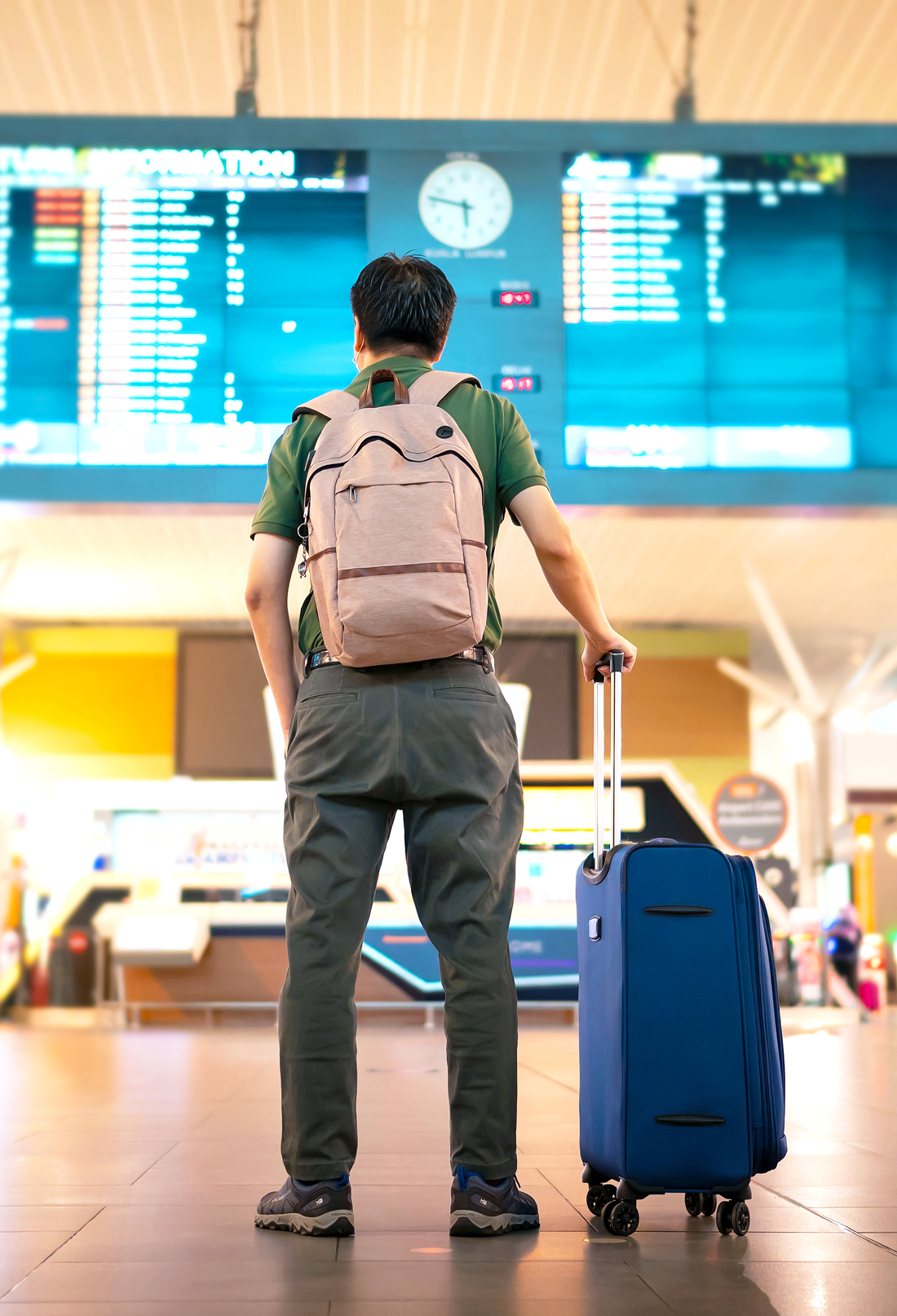Sometimes, even the best-laid travel plans go awry. Nearly a quarter of all flights operated by U.S. airlines in 2023 arrived at their destinations late, according to the Bureau of Transportation Statistics. But what happens to travelers who are stuck with unexpected expenses arising from flight disruptions? Fortunately, if you’re traveling in Europe, there are a set of consumer protections in place known as EU 261. Understanding how these regulations work can help you get the compensation you deserve from flight delays or cancellations in Europe. Find a helpful guide below.
What Is EU 261?

Regulation (EC) No 261/2004 (often called the Air Passengers Rights Regulation 2004 or simply EU 261) establishes clear rules for what compensation airlines owe passengers — whether that’s cash, hotels, or meal vouchers — for long flight delays, cancellations, or denied boarding. In terms of travelers’ rights, these are some of the most comprehensive and passenger-friendly regulations that exist today. These regulations apply to EU member countries (of which there are 27) as well as flights to and from Iceland, Norway, and Switzerland. Post-Brexit, the United Kingdom also adopted EU 261 regulations into law.
What Flights Does EU 261 Cover?

Knowing when EU 261 regulations kick in can be a bit tricky. The law applies in the following situations:
• Flights within the EU — flights can be operated by an airline based in the EU or a non-EU airline
• Flights that arrive in the EU from outside the EU — these must be operated by an EU-based airline
• Flights that depart from the EU to a country outside the EU — these can be operated by either an EU airline or a non-EU airline
You might notice that you are not due any compensation for flight disruptions that occur on a connecting itinerary through the EU. For example, if you were flying from New York to Cape Town via Amsterdam, you would not receive compensation if either of your flights were delayed. But if you were flying from New York to a final destination of Amsterdam and that flight was delayed, you would be covered under EU 261 — but only if your flight was operated by an EU member airline. (If you were departing from the EU on your way back to New York, the airline wouldn’t matter.)
Note that if passengers voluntarily accept a rerouted itinerary from the airline and arrive within two to four hours of their original time (based on the flight distance), the compensation may be reduced by 50%, according to the regulations.
Additionally, for the purposes of “EU,” this includes the countries outlined above (Iceland, Norway, Switzerland, and the U.K.), as well as the dependent territories of Guadeloupe, French Guiana, Martinique, Réunion Island, Mayotte, St. Martin, the Azores, Madeira, and the Canary Islands (except the Faroe Islands).
When Are You Entitled to Compensation for Flight Delays?

Firstly, you are entitled to compensation under EU 261 only for flight disruptions that are within an airline’s control. This could include crew scheduling issues or mechanical problems, for example, but causes such as weather, employee strikes, political unrest, or air traffic control congestion would not be covered. The latter are deemed “extraordinary circumstances” that are outside an airline’s control.
Also take careful note of which airline is operating your flight. Many airlines offer “codeshares” with other airlines, allowing them to sell seats on another carrier. For example, Air France might put their code on a Delta flight from Atlanta to Paris. But for the purposes of EU 261 compensation, it matters which airline is actually operating your flight, not the airline from which you bought the ticket.
For flight delays of three or more hours (calculated based on the arrival at your final destination), passengers are entitled to cash compensation based on the distance of the flight:
• For flights under 1,500 kilometers (932 miles), you’re entitled to 250 euros (about $270 USD)
• For flights between 1,500 and 3,500 kilometers (932 to 2,175 miles), you’re entitled to 400 euros (about $435 USD)
• For flights over 3,500 kilometers (2,175 miles), you’re entitled 600 euros (about $650 USD)
EU 261 also requires airlines to offer passengers assistance in the form of meals and refreshments. These rules kick in after a departure delay of two hours for flight distances in the first category above, three hours for the second category, and four hours for the third category. And if a delay is overnight, the passenger is entitled to reimbursement of hotel expenses, including transportation to and from the hotel. Of note, these passenger assistance rules apply in all situations, even those deemed “extraordinary circumstances.”
Additionally, if a delay is in excess of five hours, passengers can ask for a full or partial refund of their original ticket and a return flight to their point of departure.
What About Flight Cancellations?

The same compensation rules above also apply to flight cancellations, provided the airline informs the traveler of the cancellation less than 14 days prior to the scheduled departure date. (Similar rules also apply in cases where the passenger is denied boarding or a flight is overbooked.)
For flight cancellations specifically, the airline is required to offer the passenger a choice among three options:
• Refund of your ticket (and if you have a connecting flight, this includes a return flight to your original departure airport)
• Rerouting to your final destination at the earliest opportunity
• Rerouting at a later date, subject to availability
How To Claim EU 261 Compensation

If you experienced a flight disruption that meets the above conditions while traveling to, from, or around Europe, you’ll need to file an EU 261 claim. This cannot be done at the airport, but must be done directly with the airline after you arrive at your destination.
Unfortunately, each airline has a slightly different process. Some offer electronic forms to fill out on their website; others require passengers to file a claim via email and submit relevant documents such as your boarding pass. So, check the website of the airline that operated your flight and be sure to save any relevant documentation in case they require it — including screenshots of delay notifications. You can also enlist the help of a third-party company (for a fee) to secure whatever compensation is due under EU 261 regulation.
Note there are also filing deadlines in order to receive compensation, which vary by country. AirHelp, a company that helps passengers process these claims, has compiled a handy chart with these filing deadlines.
More from our network
Daily Passport is part of Inbox Studio, an email-first media company. *Indicates a third-party property.
















